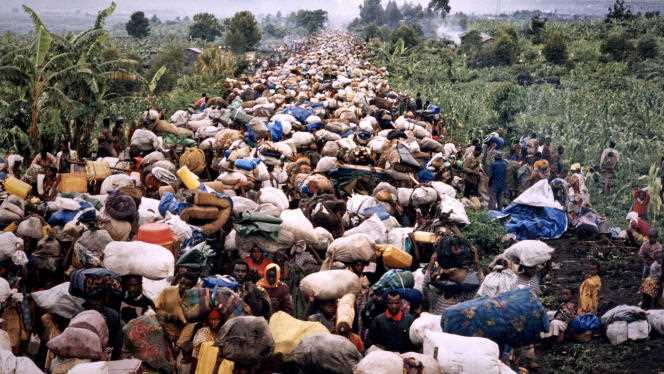THE OPINION OF THE “WORLD” – NOT TO BE MISSED
At 69, the Belgian director Thierry Michel has built, within his work, a kind of film cathedral dedicated to the current Democratic Republic of Congo, former Belgian Congo. His some thirteen films, made between 1992 and 2022, which constitute an incomparable political, social and anthropological radiography of this country, and of the historical horrors which have in turn shaped and disfigured it since colonization.
latest opus, The Empire of Silence presents itself as the sum of the work carried out by the director for thirty years, and undoubtedly also as the apotheosis of the passion, empathy and anger from which it proceeds. A vast historical synthesis of a country at war for more than two decades and which has never ceased to be bled, in full view of the whole world, this film proceeds above all from a scathing denunciation of this scandal, from a attempt to overcome the law of silence. As such, it is a slap in the face, and it is to be feared that the effect – while all eyes are today on the martyrdom of Ukraine – will once again be tragically diminished.
Why is this country as large as Europe, with exceptional resources, one of the poorest in the world?
Also, the fundamental question tirelessly crossed in the African work of Thierry Michel is seized here head-on: why is this country as large as Europe, with exceptional mineral resources, one of the most poor in the world? And why is the state of declared or latent war that has been raging there for almost thirty years and which has caused millions of deaths not the subject of any international sanction? It is to be feared that the answer will be the most cruel one can imagine: because that, directly or indirectly, suits everyone. The power in place. The rebels. surrounding countries. The West. All the actors in this inextinguishable conflict, like scavengers around a wounded animal, never stop taking advantage of its vital resources.
Complexity of motivations
This film, whose formal classicism, discreet subjectivity, wounded humanism are the best assets, unfolds along two axes. On the one hand, a series of expressionist paintings of crimes, glimpsed thanks to a patient collection of archives. On the other hand, a step-by-step, patient and complex reconstruction of the inextricable web of causes and the responsibilities that explain them. On the first of these points, it is hell and its cohorts. Exoduses and population displacements, indiscriminate massacres, mass graves, children devoured by insects, famine, disease, child soldiers… Here is what the journalist Deogratia Namujimbo has to say: “The crows had eaten so many corpses that they could no longer fly. » A word that creates an image and needs no longer comments.
You have 47.5% of this article left to read. The following is for subscribers only.
